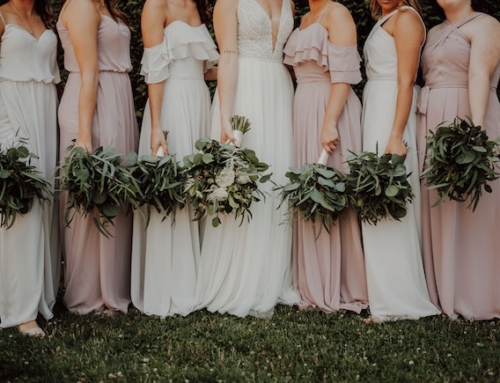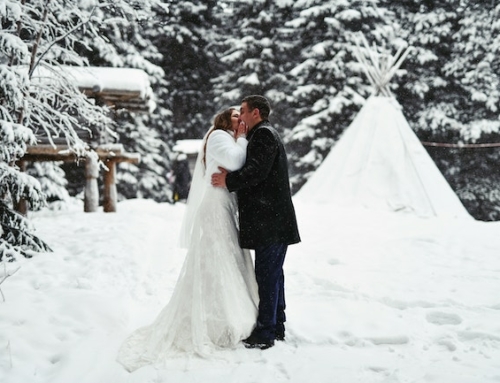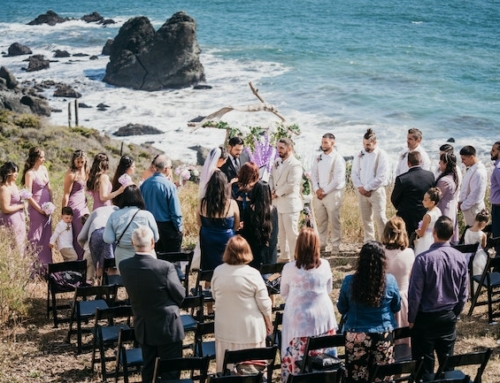Planning a wedding is an exciting yet challenging endeavor that requires careful organization and attention to detail. With the multitude of tasks involved, many couples find themselves overwhelmed and unsure of where to begin. This is where the assistance of a wedding planner or a day-of coordinator can make all the difference.
The purpose of this article is to guide you through the decision-making process of choosing between a wedding planner and a day-of coordinator. We understand that every couple has unique needs and preferences when it comes to their wedding, and making the right choice is crucial to ensuring a smooth and memorable experience.

In this article, we will delve into the roles and responsibilities of both wedding planners and day-of coordinators, allowing you to gain a clear understanding of what each service entails. We will explore the scenarios in which hiring a wedding planner or a day-of coordinator is most beneficial, considering factors such as the size and complexity of your wedding, your availability, and your budget.
Furthermore, we will provide you with essential tips for hiring the right professional, including researching, interviewing, and evaluating potential candidates. We will also discuss additional considerations such as communication preferences, service scope, and contractual agreements to help you make a well-informed decision.
Understanding the Roles
Before making a decision between hiring a wedding planner or a day-of coordinator, it’s important to have a clear understanding of the roles and responsibilities associated with each service. While both professionals play crucial roles in ensuring the smooth execution of your wedding, their areas of focus differ.
Wedding Planner

A wedding planner is a professional who assists you throughout the entire wedding planning process, from the initial stages of conceptualization to the final execution. Their responsibilities may include:
- Assisting with budget management and allocation of funds.
- Helping with vendor selection and negotiation.
- Creating a detailed timeline and ensuring that everything runs according to schedule.
- Providing guidance on design and decor, including theme development and color schemes.
- Managing RSVPs, guest lists, and seating arrangements.
- Offering advice and recommendations based on their expertise and industry knowledge.
- Coordinating and overseeing various aspects of the wedding, such as rehearsals, ceremonies, and receptions.
Day-of Coordinator

A day-of coordinator, also known as a wedding coordinator or a wedding director, primarily focuses on the execution of your wedding day itself. Their responsibilities may include:
- Reviewing and confirming vendor contracts and arrangements.
- Creating a detailed timeline and ensuring that all vendors and participants are aware of their roles and responsibilities.
- Coordinating logistics, such as setup, breakdown, and transportation.
- Managing the flow of events throughout the day, ensuring that everything runs smoothly and according to the established timeline.
- Assisting with the coordination of the ceremony, including cueing music, coordinating the processional and recessional, and ensuring that all participants are in the right place at the right time.
- Overseeing the reception, including coordinating the grand entrance, toasts, speeches, and other formalities.
- Handling any unforeseen issues or emergencies that may arise during the wedding day.

It’s important to note that the extent of services provided by a wedding planner or a day-of coordinator may vary depending on the specific package or agreement you have with them. Some wedding planners may offer comprehensive packages that encompass both the planning process and day-of coordination, while others may focus solely on one aspect.
Understanding the roles and responsibilities associated with wedding planners and day-of coordinators will help you determine which service aligns best with your needs, budget, and level of involvement in the planning process. In the next sections of this article, we will explore scenarios in which each service may be most beneficial, helping you make an informed decision for your wedding.
When to Consider Hiring a Wedding Planner
Limited Time
If you have a busy schedule or limited time to dedicate to wedding planning, hiring a wedding planner can be a lifesaver. They can take care of the numerous tasks involved in planning a wedding, allowing you to focus on other commitments.
Complex Logistics
If your wedding involves multiple venues, intricate logistics, or unique requirements, a wedding planner’s expertise can be invaluable. They have experience coordinating complex events and can ensure that everything runs smoothly.

Guidance and Expertise
If you’re unsure about where to start or how to bring your vision to life, a wedding planner can provide valuable guidance and creative ideas. They have industry knowledge and connections to help you make informed decisions.
Budget Management
Wedding planners are skilled at managing budgets and finding cost-effective solutions. They can help you allocate funds efficiently, negotiate with vendors, and identify areas where you can save money without compromising on quality.
Stress Management
Planning a wedding can be overwhelming and stressful. A wedding planner can alleviate much of the stress by handling the logistics, troubleshooting issues, and ensuring that everything is on track. They act as a buffer between you and potential stressors.
Vendor Selection and Coordination
Wedding planners have established relationships with various vendors and can recommend trusted professionals who align with your style and budget. They can handle the coordination and communication with vendors, ensuring that everyone is on the same page.

Attention to Detail
Wedding planners have a keen eye for detail and can ensure that no aspect of your wedding is overlooked. From coordinating timelines to checking contracts and ensuring that all details are in place, they strive for perfection.
Remember, hiring a wedding planner is a personal decision based on your individual circumstances and preferences. If you feel overwhelmed or want professional assistance throughout the planning process, a wedding planner can provide valuable support and ensure that your big day is everything you envision it to be.
When to Consider Hiring a Day-of Coordinator
DIY Planning
If you’ve taken on the task of planning your wedding yourself but want to ensure a smooth execution on the actual day, hiring a day-of coordinator can be beneficial. They can step in to manage the logistics and handle any last-minute details, allowing you to relax and enjoy your special day. Utilising Thebigdays wedding planning system is a great way to streamline your DIY planning while also hiring a day-of coordinator too.

Limited Budget
If you have a tight budget and cannot afford a full-service wedding planner, a day-of coordinator offers a cost-effective solution. They typically offer their services for a shorter duration, focusing primarily on coordinating the wedding day itself.
Venue Coordination
If your venue does not provide an on-site coordinator or has limited staff to assist with wedding-related matters, hiring a day-of coordinator can fill that gap. They can liaise with the venue, ensuring that everything is set up correctly and that the event runs smoothly.
Assistance with Timeline and Logistics
A day-of coordinator can help create a detailed timeline for the wedding day, ensuring that all events and activities are coordinated seamlessly. They can oversee the logistics, such as coordinating vendor arrivals, managing the ceremony processional, and ensuring timely transitions throughout the day.
Stress Reduction
Having a professional on-site to handle any unexpected issues or challenges can significantly reduce stress for you and your loved ones. A day-of coordinator can troubleshoot problems, make quick decisions, and ensure that everything stays on track, allowing you to fully enjoy your wedding day.

Vendor Coordination
If you have already hired your vendors but want someone to oversee their activities on the wedding day, a day-of coordinator can take on that responsibility. They can communicate with vendors, provide directions, and address any issues that may arise.
Peace of Mind
Hiring a day-of coordinator ensures a smooth wedding day. They handle questions, concerns, and emergencies, allowing you to relax. Remember, they focus on execution, not planning. If you can handle planning but want event assistance, a day-of coordinator is valuable.
Assessing Your Needs and Budget
Determine Your Wedding Planning Skills
Evaluate your own abilities and comfort level in planning and coordinating events. If you have experience and feel confident in handling the various aspects of wedding planning, you may opt for a day-of coordinator. However, if you feel overwhelmed or lack the necessary expertise, a wedding planner can provide comprehensive assistance from start to finish.

Clarify Your Expectations and Vision
Consider the level of involvement you desire in the planning process. If you have a clear vision for your wedding and want to be actively involved in every decision, a day-of coordinator may be sufficient. However, if you prefer professional guidance and support throughout the entire planning journey, a wedding planner is better suited to fulfill your needs.
Define Your Budget
Evaluate your budget and determine how much you can allocate to wedding planning services. Wedding planners typically offer comprehensive packages that encompass various aspects of the planning process, while day-of coordinators typically charge a flat fee for their services on the wedding day itself. Consider your financial resources and priorities to make an informed decision.
Time Constraints
Assess your availability and schedule leading up to the wedding day. A planner saves time for busy individuals, while a day-of coordinator assists with execution on the wedding day for those with ample planning time.

Complexity of the Event
Consider the complexity and scale of your wedding. If you are planning a large, elaborate wedding with multiple venues, numerous vendors, and intricate logistics, a wedding planner can provide the expertise and resources needed to manage such an event. A day-of coordinator may be more appropriate for smaller, simpler weddings with fewer moving parts.
Personal Preferences
Ultimately, your personal preferences and comfort level should guide your decision. Reflect on your wedding vision, the level of control you desire, and the level of stress you are willing to handle. Choose the option that aligns with your personality and ensures a seamless and enjoyable wedding planning experience.
Additional Considerations
Venue Requirements
Consider venue requirements or restrictions that may impact your decision. Some venues have on-site coordinators or preferred vendors who can assist, affecting your need for external help.

Complexity of the Event
Evaluate the complexity of your wedding celebration. If you have a large guest count, multiple event spaces, or intricate logistical arrangements, hiring a wedding planner who can handle all the details from start to finish may be beneficial. On the other hand, if your wedding is relatively simple and straightforward, a day-of coordinator may be sufficient to ensure everything runs smoothly on the day of the event.
Time and Availability
Consider your own availability and time constraints leading up to the wedding. Planning a wedding requires a significant amount of time, research, and coordination.If you’re busy or have limited time, a planner can alleviate stress. If you prefer hands-on planning and have the time and resources, a day-of coordinator can execute your plans.
Personal Preferences
Think about your personal preferences and comfort level with wedding planning. Some individuals may enjoy the process and have the organizational skills to handle most aspects themselves. Others may prefer to entrust the planning and execution to a professional to ensure a seamless and stress-free experience. Consider which option aligns best with your personality and preferences.

Budget Allocation
Evaluate your wedding budget and determine how much you are willing to allocate to professional planning or coordination services. Wedding planners typically charge a percentage of the overall wedding budget or a flat fee, while day-of coordinators often have more affordable packages. Assess the importance you place on professional assistance and allocate funds accordingly.
Support Network
Consider the availability of a support network of friends and family who can help with wedding planning and coordination. If you have capable individuals willing to take on responsibilities, you may manage without hiring a professional. However, if you lack a strong support network or want loved ones to fully enjoy the wedding day, hiring a planner or coordinator is a valuable investment.
Remember, the decision to hire a wedding planner or day-of coordinator depends on your specific needs, preferences, and budget. Considering these factors helps you choose the right service and enjoy a smooth wedding planning experience.










